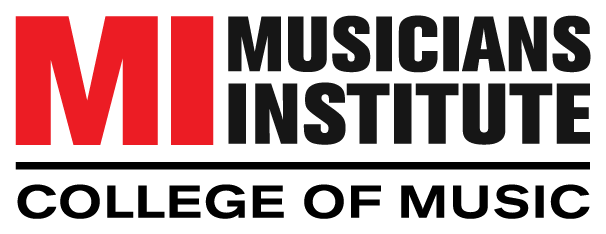If you’ve ever watched a live concert or music video, you’ve probably noticed the talented singers supporting the main artist, the ones harmonizing, adding energy, and helping bring the performance to life. These performers are backup singers, and while the spotlight may not always be on them, their role is essential to the sound and success of a show or recording.
For aspiring vocalists, becoming a backup singer can be an exciting and rewarding career path. It offers consistent work, opportunities to collaborate with major artists, and the chance to perform on stages all over the world. Here’s a step-by-step look at how to start your journey, plus how Musicians Institute (MI) can help you make it happen.
1. Build Strong Vocal Technique
Backup singers need exceptional control over their voices. You’ll often be asked to blend seamlessly with others, shift between lead and harmony lines, and adapt to different genres — all without straining your voice.
How MI Helps: At MI, students in our Vocal Performance Program receive one-on-one instruction in technique, harmony, and stylistic versatility across genres like pop, R&B, rock, gospel, and jazz. This ensures you’re ready for any gig that comes your way.

Blog Post
"*" indicates required fields
By submitting this form, I authorize Musicians Institute (MI) to make or allow the placement of calls, emails, and texts to me at the phone number that I have provided, including through the use of automated technology, or a prerecorded or artificial voice. I understand that I am not required to provide my phone number as a condition of purchasing any property, goods, or services. I agree to the terms of MI’s Privacy Policy. MI will not sell or rent your information to third parties, and you may unsubscribe at any time.
2. Develop Your Ear for Harmony
One of the main responsibilities of a backup singer is harmonizing with the lead. This means training your ear to hear intervals, recognize chord structures, and lock in with other singers.
How MI Helps: Through classes in ear training, sight singing, and live performance workshops, MI prepares you to master harmony in both rehearsed and on-the-spot situations.
3. Gain Stage Experience
Backup singers must be comfortable performing in front of large audiences, often moving while singing and projecting energy without taking focus away from the lead artist.
How MI Helps: MI’s Live Performance Workshops give students weekly opportunities to perform with a full band in a professional stage environment. These experiences build confidence and prepare you for the demands of touring and live shows.
4. Learn Professionalism and Adaptability
Backup singers are often hired based not only on talent but also on professionalism. Being punctual, adaptable, and easy to work with is essential — you may be called to step into rehearsals or tours with very little notice.
How MI Helps: MI’s Artist & Career Services Department provides workshops on professionalism, audition prep, and industry expectations, so you’ll know how to handle yourself in any professional setting.
5. Network and Make Connections
Most backup singing jobs come from your network you build and the referrals you meet. Your network of producers, vocal directors, and fellow musicians will be your gateway into auditions and gigs.
How MI Helps: By studying at MI in the heart of Hollywood, you’ll join a community of working musicians, instructors, and industry guests. MI also offers booking services, open mics, and industry showcases to help you make valuable connections.
Final Note
Becoming a backup singer requires dedication, versatility, and persistence — but the rewards are huge. From touring the world to recording with major artists, backup singers play a vital role in shaping the sound of the industry.
At Musicians Institute, you’ll gain the training, experience, and industry connections you need to launch your career as a backup singer. If you’re ready to take the first step, explore MI’s Vocal Programs today and start building your future in music.

